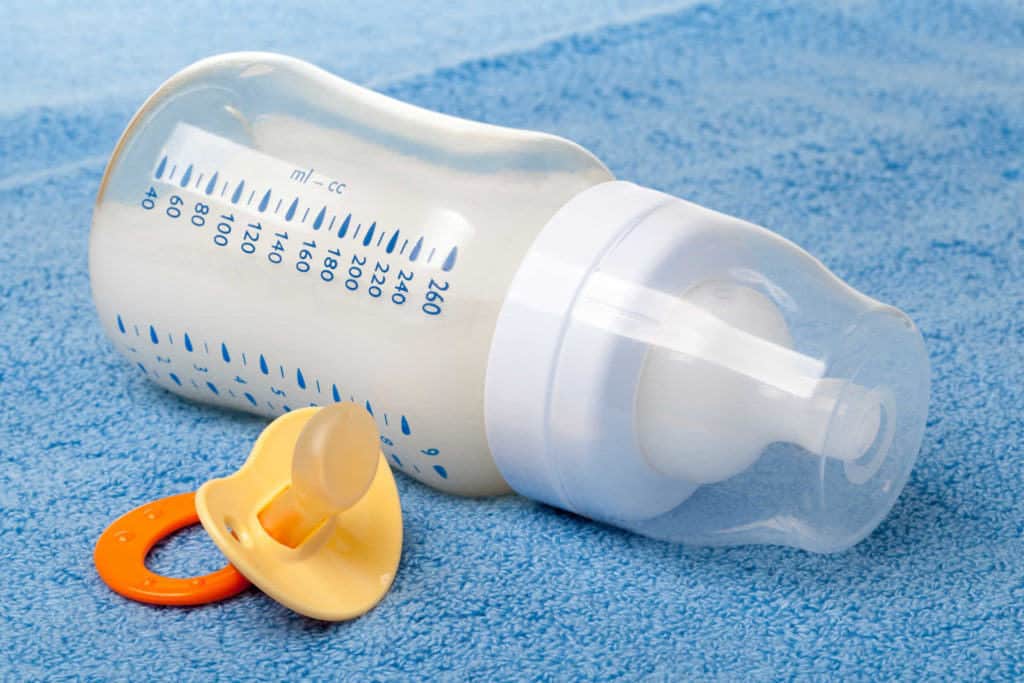Contents:
- Medical Video: Infants of Diabetic Mothers
- Symptoms
- Examination
- Treatment
- Possible complications
- When is the time to contact a doctor
- Prevention
Medical Video: Infants of Diabetic Mothers
Some women have high blood sugar (glucose) levels throughout their pregnancy. But will this affect the baby born?
High blood sugar levels in pregnant women can affect the baby after birth.
Babies born to mothers with diabetes are often born with a larger size than other babies. Deep organs such as the liver, adrenal gland, and heart tend to enlarge.
Babies like this will usually experience a period where their blood sugar levels are low (hypoglycemia) shortly after birth, due to increased levels of insulin in their blood. Insulin is a substance that moves sugar (glucose) levels from the blood into the body's tissues. The baby's blood sugar level needs to be monitored within the first 12-24 hours after birth.
Poorly controlled mothers with diabetes are also more likely to experience a miscarriage or their baby is born but is already lifeless. The birth process is usually difficult if the size of the baby is large. This can increase the risk of brachial plexus injury and other trauma during childbirth.
If the mother has diabetes before her pregnancy, the baby has an increased risk of birth defects if the mother's diabetes is not controlled properly.
Symptoms
- Blue or speckled skin color
- Fast heart rate, rapid breathing (signs of incomplete lung or heart failure)
- Yellow baby skin
- Do not want to eat or bad appetite
- Flagging, crying weakly (signs of severe low blood sugar)
- Swollen face
- Reddish body skin
- Tremble immediately after birth
Examination
Before a baby is born:
- Ultrasound in the mother is done in the last few months of pregnancy to assess the development of a baby whose results will show that the baby is big enough for gestational age.
- Lung maturity testing can be done on amniotic fluid, if the baby will be born more than 1 week before the due date.
After the baby is born:
- The test can show whether the baby has low blood sugar levels and low blood calcium.
- An echocardiogram can indicate abnormal heart enlargement conditions, which can be accompanied by heart failure.
Treatment
All babies born to mothers with diabetes should be tested for symptoms of low blood sugar (hypoglycemia), even if they are asymptomatic. If the baby shows one of the symptoms of low blood sugar, the test can be done for several days. The test will continue until the baby's blood sugar can be stabilized while still being given ASI normally.
In some mild cases, breastfeeding after giving birth can be effective in preventing low blood sugar. Low blood sugar levels that do not return to normal can be quickly treated by giving sugar (glucose) and water given through the pulse.
A rare case is when a baby may need respiratory assistance or medicines to treat the effects of other diabetes. High levels of bilirubin are treated with light therapy (phototherapy). Also in cases that are also rare, the baby's blood will be replaced with blood from a donor (exchange transfusion) to deal with this problem.
Often, the symptoms that occur in a baby will disappear within a few weeks. But if their heart condition enlarges, it may take several months to heal.
Possible complications
- Congenital heart defects
- Heart failure
- High bilirubin levels (hyperbilirubinemia) which can cause permanent brain damage if left untreated
- Lung function is not perfect
- Neonatal polycythemia (more red blood cells than usual) which can cause blockages in blood vessels or hyperbilirubinemia
- Acute low blood sugar which can cause permanent brain damage
- Small left bowel syndrome that can cause symptoms of intestinal blockage
- Died at birth
When is the time to contact a doctor
If you are pregnant and get routine pregnancy care, routine tests will show that you are sick / showing symptoms of gestational diabetes.
If you are pregnant and have uncontrolled diabetes, contact your doctor immediately.
If you are pregnant and do not get prenatal care, contact your health care provider for discussion. You can also contact the Health Office to ask for instructions on how to get prenatal care assisted by the state.
Prevention
Women who have diabetes need special care during pregnancy to prevent complications. Controlling blood sugar and diagnosing gestational diabetes early can prevent various problems.
Lung health tests can help prevent respiratory complications that can occur if the baby is born a week earlier than the date of birth that the doctor estimates.
Being careful in monitoring the baby in the first hour after birth can prevent complications due to low blood sugar. Monitoring and treatment in the first few days can prevent complications due to high levels of bilirubin.
READ ALSO:
- Risk factors for type 2 diabetes
- Complications of diabetes: insulin shock
- Gestational diabetes: diabetes that occurs while pregnant












